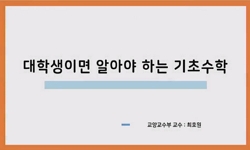The purpose of this study is to identify the relationship between drinking refusal self-efficacy, daily life stress and intention to drink moderately, as well as investigate the factors influencing intention to drink moderately. The subjects of the st...
http://chineseinput.net/에서 pinyin(병음)방식으로 중국어를 변환할 수 있습니다.
변환된 중국어를 복사하여 사용하시면 됩니다.
- 中文 을 입력하시려면 zhongwen을 입력하시고 space를누르시면됩니다.
- 北京 을 입력하시려면 beijing을 입력하시고 space를 누르시면 됩니다.
https://www.riss.kr/link?id=A109580752
- 저자
- 발행기관
- 학술지명
- 권호사항
-
발행연도
2025
-
작성언어
Korean
- 주제어
-
KDC
505
-
등재정보
KCI등재
-
자료형태
학술저널
-
수록면
128-137(10쪽)
- 제공처
-
0
상세조회 -
0
다운로드
부가정보
다국어 초록 (Multilingual Abstract)
The purpose of this study is to identify the relationship between drinking refusal self-efficacy, daily life stress and intention to drink moderately, as well as investigate the factors influencing intention to drink moderately. The subjects of the study surveyed 243 university students enrolled in J University located in C province using a structured questionnaire. The data were collected from October 6 to 26, 2023, and analyzed based on frequency, percentile, mean, t-test, ANOVA, Pearson’s correlations, and multiple regressions. Drinking refusal self-efficacy (r=.48, p<.001) and daily life stress (r=-.23, p=.001) were significantly correlated with intention to drink moderately in college students. As a result of multiple regression analysis, the regression model of college students’ intention to moderate drinking was significant (F=17.54, p<.001), drinking refusal self-efficacy had the strongest influence on college students’ intention to drink moderately, followed by daily life stress, smoking; these factors accounted for 25% of the total variance in intention to drink moderately (Adj. R² =.25, p<.001). Therefore, it is necessary to develop education and counseling programs to increase the drinking refusal self-efficacy, which has been identified as a factor influencing college students' intention to drink moderately, and to manage daily life stress and smoking.
동일학술지(권/호) 다른 논문
-
- 한국산학기술학회
- 오민지(Min-Ji Oh)
- 2025
- KCI등재
-
A Case Study on the Air Force Base-level Crew Scheduling
- 한국산학기술학회
- Young-Ho Cha(차영호)
- 2025
- KCI등재
-
초,중,고등학교 학생 대상의 방사능방재교육 강사의 교육경험
- 한국산학기술학회
- 김혜진(Hyejin Kim)
- 2025
- KCI등재
-
LDA를 활용한 학교폭력 연구 동향 분석: COVID-19 전후의 문헌 고찰
- 한국산학기술학회
- 황성숙(Sung-Sook Hwang)
- 2025
- KCI등재





 DBpia
DBpia




